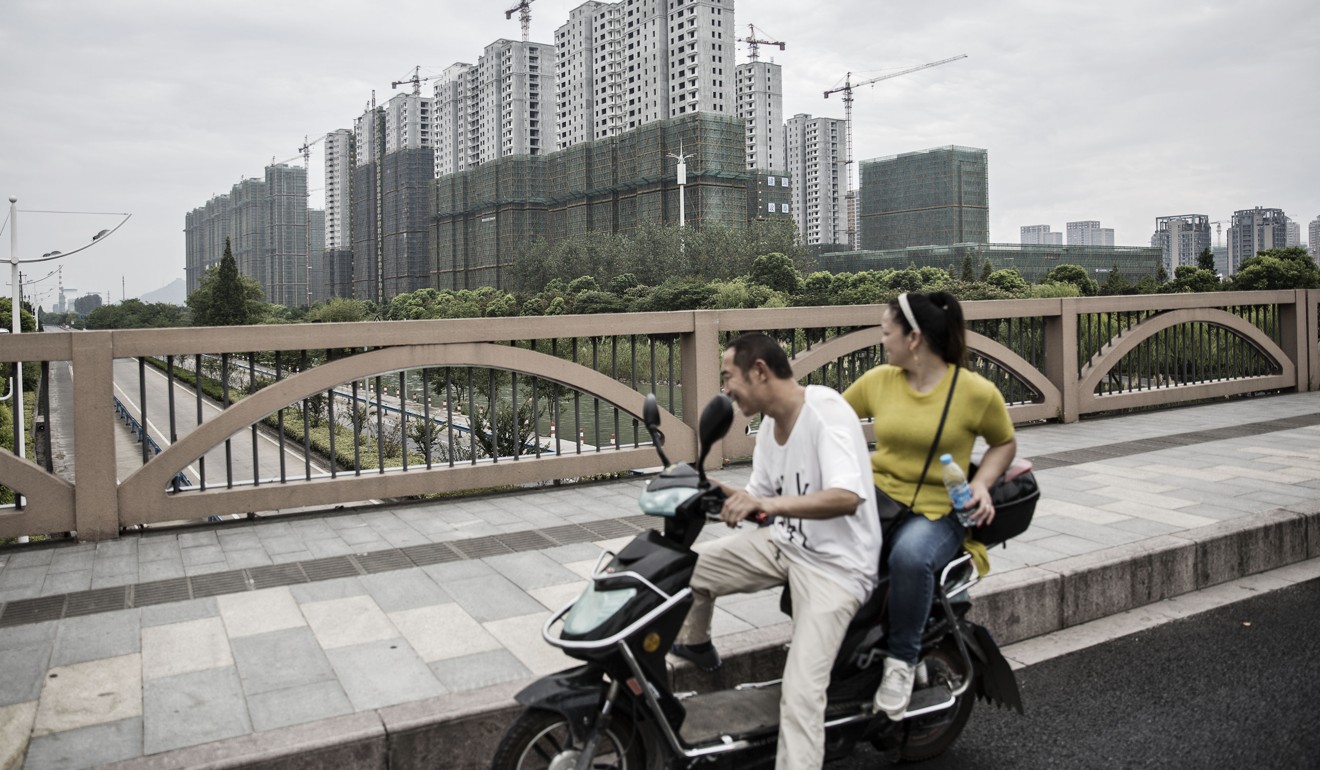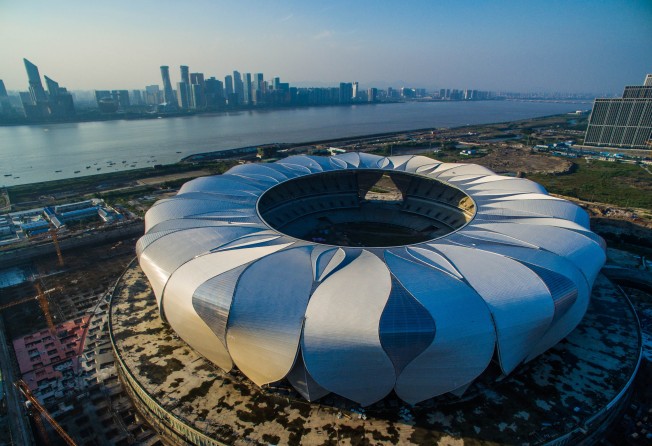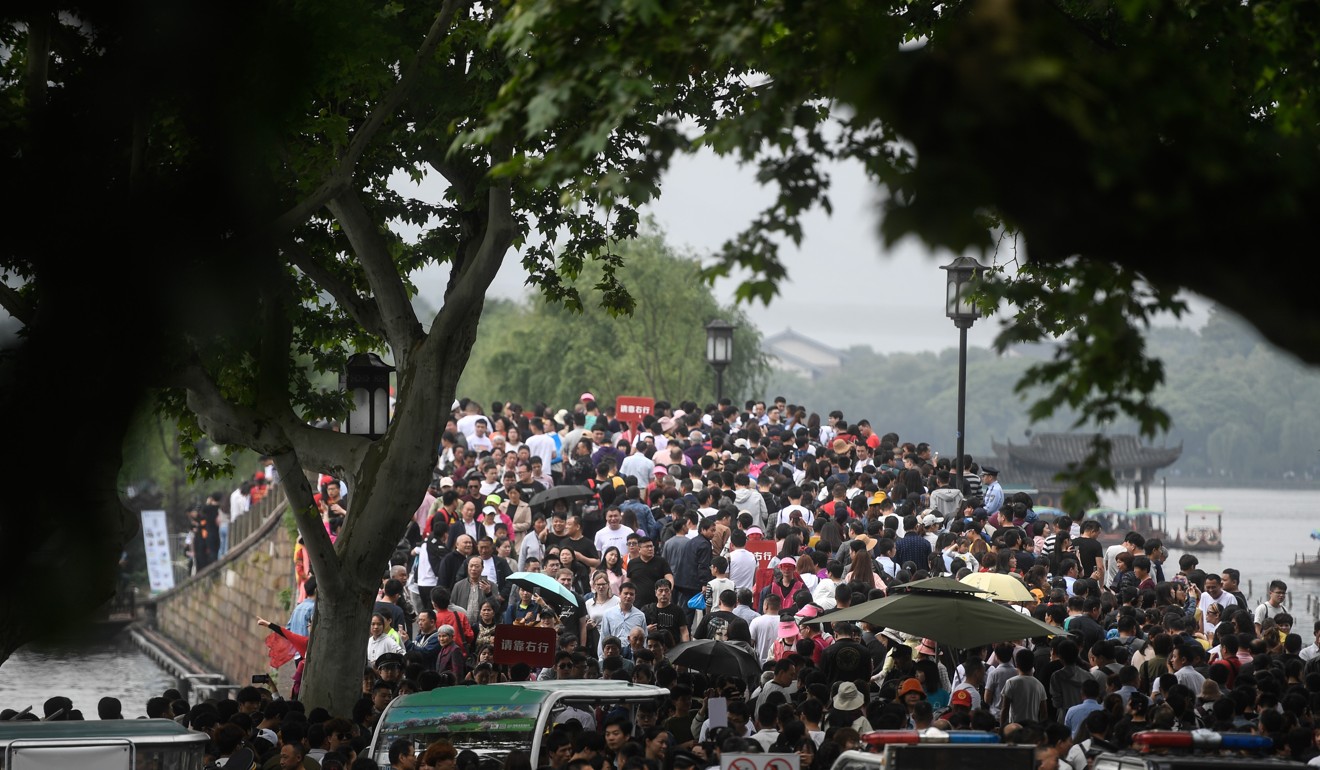
Hangzhou: the Chinese city using land sales as a cash machine to pay for the 2022 Asian Games
- The provincial capital city sold 295 parcels in the five months through May, raising 113.5 billion yuan
- Funds raised will help pay for infrastructure and other works related to 2022 Asian Games

Hangzhou, the provincial capital of the third most indebted Chinese region, raised more funds through land sales than any other Chinese city in the first five months of this year, as the local authority grapples with how to pay for a massive infrastructure and construction binge ahead of the 2022 Asian Games.
The city renowned for its picturesque West Lake raised 113.5 billion yuan by selling 295 land parcels in the five months through May, according to calculations by the South China Morning Post based on Wind data.
The land sales are equivalent to 8 per cent of the city’s 1.35 trillion yuan GDP. The land sale bounty overshadows funds raised by similar sales in Shanghai by 91 per cent, and in the nation’s capital Beijing by 61.8 per cent.
Hangzhou, with a population of 9.8 million, relies on land sales for the majority of its revenue base, with income from these sales amounting to 1.34 times fiscal revenue, the highest among all major mainland cities.
Analysts said property developers eager to replenish their land banks were a factor in driving torrid sales in second-tier cities. Tianjin and Wuhan rounded out the second and third spots nationwide in terms of funds raised by land sales during the period.
“Developers have limited options. First-tier cities have limited land supply, very tight controls on buying eligibility and future home selling prices, which squeezed developers’ margins. Meanwhile, small cities don’t have such a strong housing demand,” said S&P Global Ratings credit analyst Matthew Chow. “Second-tier cities combine quantity, price, fewer policy restrictions and strong demand.”

Chow said the land sales coincide with a revival in the mainland property market following relaxed pricing regulations and easing mortgage policies in second-tier cities.
Hangzhou is also seen as a beneficiary of China’s growing dominance in technology, attracting a net 338,000 residents last year thanks in part to a relaxation on residency requirements designed to boost urbanisation and help tech companies source workers.
Among mid-tier cities, only Xi’an had a greater population growth, attracting a net 387,000 new residents in 2018.
“Controls on Hangzhou’s home selling prices eased in early 2019, as the hukou threshold was lowered, buoying overall sentiment. The local government took the opportunity to put more plots of land for sale, many in prime locations near downtown. The higher average land price stimulated more upbeat sentiment,” Qian Yuling, a Hangzhou-based analyst with property consultancy CRIC, said.
The land sales in Hangzhou were completed at an average price of 7,698 yuan per square metre.

Municipal authorities are believed to have brought forward land sales expected to take place later this year in an effort to benefit from the market upturn that began in March.
Other analysts said local authorities were pushing ahead with land sales to help pay for infrastructure and other capital expenditure related to its role as host city for the 2022 Asian Games.
Hangzhou is building 10 new subway lines due for completion by 2022. Construction work is also underway for several facilities in support of the games, including a 80,000-seat lotus-shaped stadium known as the Hangzhou Olympic Center.
The city’s investment promotion bureau highlighted the broader economic benefits of hosting the games, saying the new stadium and subway lines “can lift up an area’s value, draw in new residents and boost property.”
Other analysts said the land sales also reflect changes in the geographical boundaries of the city.
“After the inclusion of two suburban counties the skeleton of the city has been greatly enlarged and there are more lands that need to be sold,” Qian said.
The boom in home prices has garnered mixed reviews from some residents.
“The price is too high compared to income. A starting home costs 2 to 3 million yuan, too high even for a middle-class family with annual income of 200,000 yuan,” a Hangzhou resident surnamed Yu said.